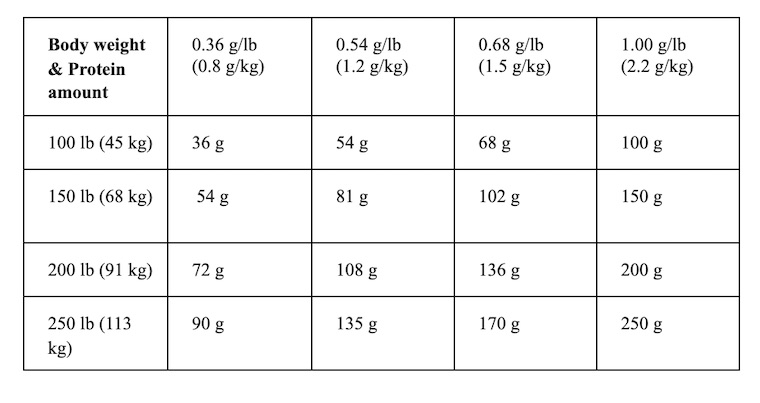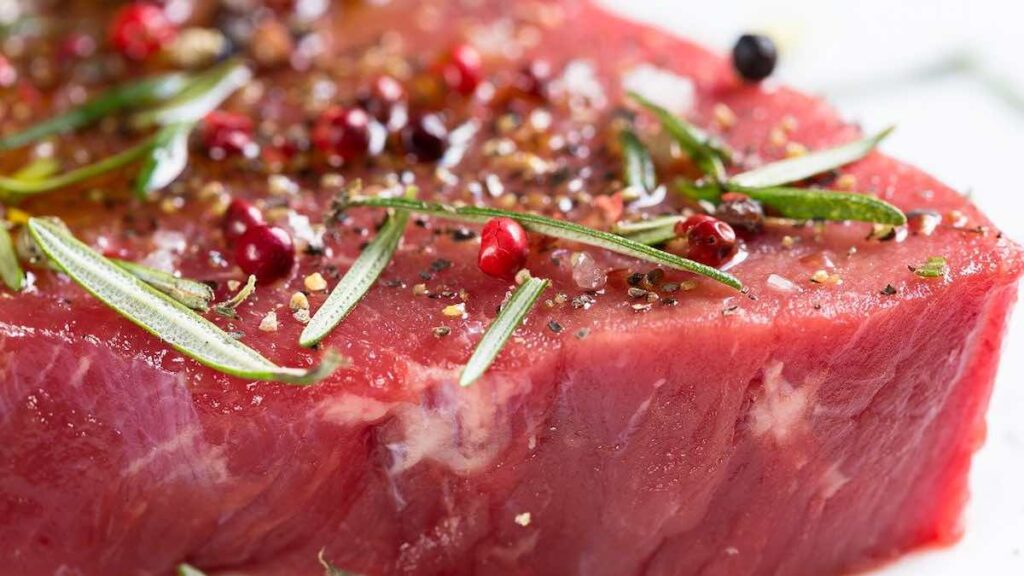Protein and carbohydrates are necessary macronutrients for all of us regardless of whether you are a weightlifter or not. For the sake of clarity, the term weightlifter is referring to individuals who are competing in the Olympic lifts: snatch and clean & jerk. Therefore, if you are not a weightlifter or other form of strength athlete, then you can presumably go about your days eating protein and carbohydrates without much concern when you consume these macronutrients. Conversely, if you are someone who is competing or actively engaged in improving your snatch and clean & jerk, then not only does the timing of when you eat protein and carbs matter, but so does the amount.
The reason for this is simple: Without proper nutrition and nutrient timing, your body will not optimally recover, your performance will suffer, and the risk of injury will increase. Therefore this article will address how much protein and carbs individuals practicing the snatch and clean & jerk should be consuming and when for maximum recovery.
Weightlifters and Nutritional Needs
Individuals performing the snatch and clean & jerk require more carbs and protein in general because of their muscles requiring more fuel for energy production. In our muscles we have what are called muscle fibers that the body calls upon to help contract our muscles and produce movement. There are two types of these fibers within our muscles known as Type I and Type II muscle fibers. Both of these muscle fibers produce energy from different fuel sources. The Type I fibers primarily use fat as a fuel source, and Type II fibers primarily use carbohydrates (glucose in the body) as a fuel source.
[Related: The Ultimate Guide to Pre and Post-Workout Nutrition]
When it comes to performing the snatch and clean & jerk specifically, the primary muscle fiber type being used are Type II muscle fibers. This is because Type I muscle fibers are typically reserved for low intensity activity like our daily movements, shorter less intense aerobic/endurance workouts, etc. As a result, the body will utilize fat to supply Type I fibers with the fuel they need to sustain muscle contraction at a lower intensity. However, when the physical activity requires more intensity, more muscle contraction force is required and the Type I muscle fibers in the body are overloaded and the body will transition to Type II muscle fibers. Simultaneously, the body switches to a faster fuel source to meet the energy demand for Type II fibers which comes in the form of carbohydrates.
Recommended Carbohydrate Amount for Weightlifters
As a result, for weightlifters to be able to fully recover their primary fuel source and maximize recovery the recommended amount of carbs needed to recover from a weightlifting session is 4-7 grams (g) per kilogram (kg) of body weight (bw) or 1.8-3.2 grams (g) per pound (lb) of body weight (bw).(1)
For example, if a male or female weighs 135 pounds then their carb intake will be in the range of 244-427 g/kg daily.
However, this is just in general and each individual is different so these numbers will change depending on the amount of time spent training (accessory work, etc.), the overall intensity of that training period, body composition goals, and more.
Recommended Protein Amount for Weightlifters
Now for protein intake, weightlifters simply need to consume enough protein to allow the body to rebuild the muscle that was torn apart during the workout. Yes, that soreness that you feel after a snatch and clean & jerk session is because the muscles used during that session have been stretched and torn as a result of the stress placed on them. This is completely normal and is why weightlifters and athletes in general require more protein. Proteins are the building blocks of the body, and because a muscle is broken down during exercise consuming enough protein helps build that muscle back up.
The amount of protein needed to recover from a weightlifting session is at least 1.4–2.0 g/kg or 0.54-0.91 g/lb to maintain and build muscle mass. See the chart below for examples.
Again, the amount required is highly individualized and will depend on body composition goals, overall daily caloric intake (if in a caloric deficit, more protein, 1.00 g/lb or 2.2 g/kg is required), and other nutritional needs.
Nutrient Timing
Now that you have a better idea of how much carbohydrates and protein you should be consuming on a daily basis, understanding when to eat these amounts is next. Nutrient timing is important for trying to build muscle, improve performance, and maximize recovery.
Below is a bullet list of things to be mindful of in addition to the nutrient timing of when to eat carbohydrates and protein.
- Vegetables should be consumed daily (before and after weightlifting workouts) to maximize digestion and nutrient absorption.
- Carbohydrates should be taken 2-4 hours before and after a weightlifting workout to improve performance and recovery.
- 6-8% carbohydrate concentration in drinks composed of maltodextrin, glucose, fructose, etc. for quick ingestion of carbohydrates without upsetting your stomach before or after.
- To improve strength and performance in weightlifting consume: 4-7 g/kg (1.8-3.2 g/lb) of carbohydrates.
- Protein should be consumed 2 hours before and after workouts if the goal is to maximize muscle growth.
- Each meal should consist of 20-30 g of protein and those meals should ideally be spread out in 3-4-hour intervals to maximize muscle protein synthesis and recovery.
- Eat fast digesting protein before and after workouts (especially within 30 mins) to speed up digestion and therefore the recovery process.
- Whey protein isolate, essential amino acids are best for this. This timing is also ideal for those who need to recover quickly between weightlifting sessions. Otherwise, you can go up to 6-8 hours before eating after a weightlifting session and still recover.
- Eat slow digesting protein such as casein before bed (ideally not within 2-3 hours of bed). This is ideal for hard gainers and individuals wanting to increase muscle mass.
Conclusion
Correctly timing your protein and carbs may be the nudge you need to break that plateau, hit a new PR, or simply feel better before, during, and after your weightlifting sessions. Remember that nutrition is highly individualized and the amount of carbs and protein, as well as the timing may be slightly different for you than what is recommended in this article.
Therefore, incorporate what you have learned from this article with an open mind and an understanding that what works for others may not work for you. Be patient and take some time to let your body adjust and listen to how you are feeling. If you feel like you have increased energy before and during a weightlifting session with faster recovery between sets and workouts then make note of your meal timing and protein and carbohydrate amount around that session.
Conversely, if you feel the opposite then make note of that and begin to adjust the amounts and timing until you feel the former. Use this simple method as your gauge and you will pinpoint what works for you in no time and will start to maximize your recovery and weightlifting performance.
References
1. Kerksick, C.M., Wilborn, C.D., Roberts, M.D. et al. ISSN exercise & sports nutrition review update: research & recommendations. J Int Soc Sports Nutr 15, 38 (2018). https://doi.org/10.1186/s12970-018-0242-y

